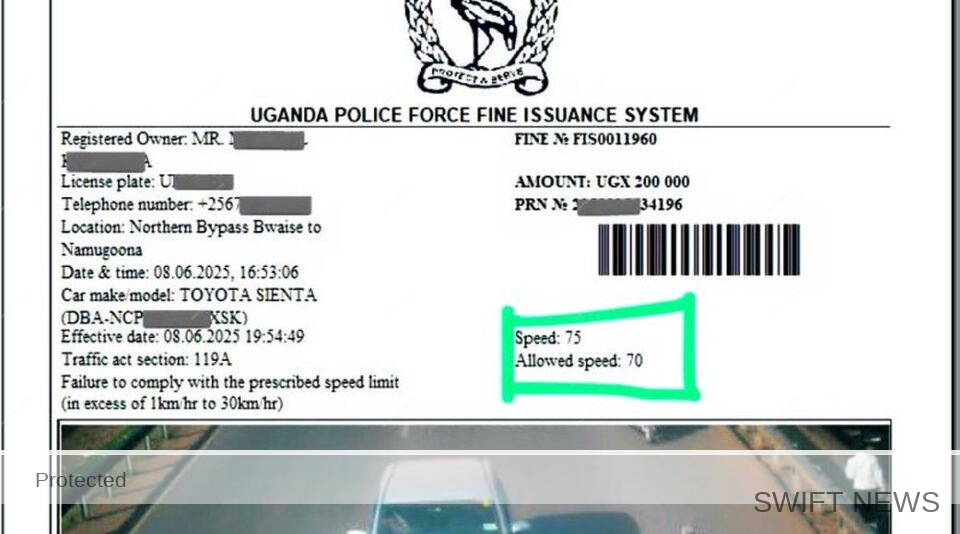
By Our Reporter
In a major development that underscores growing public discontent, the Ugandan government has temporarily suspended the Express Penalty System (EPS Auto), an automated traffic enforcement initiative that has faced intense criticism over alleged irregularities, unfair fines, and questions surrounding its legal framework.
The suspension, announced by the Ministry of Works and Transport on June 11, 2025, takes effect at midnight and marks a significant shift in government response following a public and legal uproar.
“We urge all road users to continue driving responsibly and observing traffic rules,” read a brief statement from the ministry. A more detailed address by Works Minister Gen. Edward Katumba Wamala is expected on June 12, where he is likely to outline possible reforms or a permanent overhaul of the system.
The government’s move comes just hours after Muhammad Brutus Kagingo, a Ugandan citizen, filed a High Court petition seeking to halt both the collection of express penalty fees and the issuance of digital number plates, citing legal and procedural breaches by the company managing the system.
Kagingo’s court filing raised serious allegations against Joint Stock Company Global Security, which was awarded the contract to manage digital number plates and oversee the automated fine system. He claims the company was struck off the Uganda Registration Services Bureau (URSB) register for failing to file mandatory returns for over five years, and therefore lacked legal status when it was granted the tender.
Accusations of Fraud, Tax Evasion, and Conflict of Interest
According to Kagingo, Global Security was never gazetted as required by law before commencing operations, a procedural lapse that, he says, invalidates the firm’s authority to issue fines or operate within Uganda’s legal framework. He also expressed doubts about the security integrity of the digital number plates being rolled out.
Even more troubling, Kagingo accuses the company of evading taxes, asserting that receipts from Express Penalties are not reflected in the Uganda Revenue Authority’s Electronic Fiscal Receipting and Invoicing System (EFRIS), suggesting a possible circumvention of VAT obligations.
In a bold claim, Kagingo also pointed to a potential conflict of interest involving the Attorney General, Kiryowa Kiwanuka, who he says is linked to K&K Advocates, the legal firm representing Global Security.
Registrar Zirintusa directed all parties to file their written submissions ahead of a final ruling scheduled for July 10, 2025.
Meanwhile, While the Ministry of Works has yet to clarify how existing fines will be handled—or whether refunds will be issued—the temporary halt signals the government’s acknowledgment of serious public and legal concerns. Minister Katumba Wamala’s upcoming address is expected to provide clarity on the future of the EPS system and the broader digital number plate project.
For now, Ugandan motorists can expect a reprieve, but questions about transparency, legality, and accountability remain front and center.

